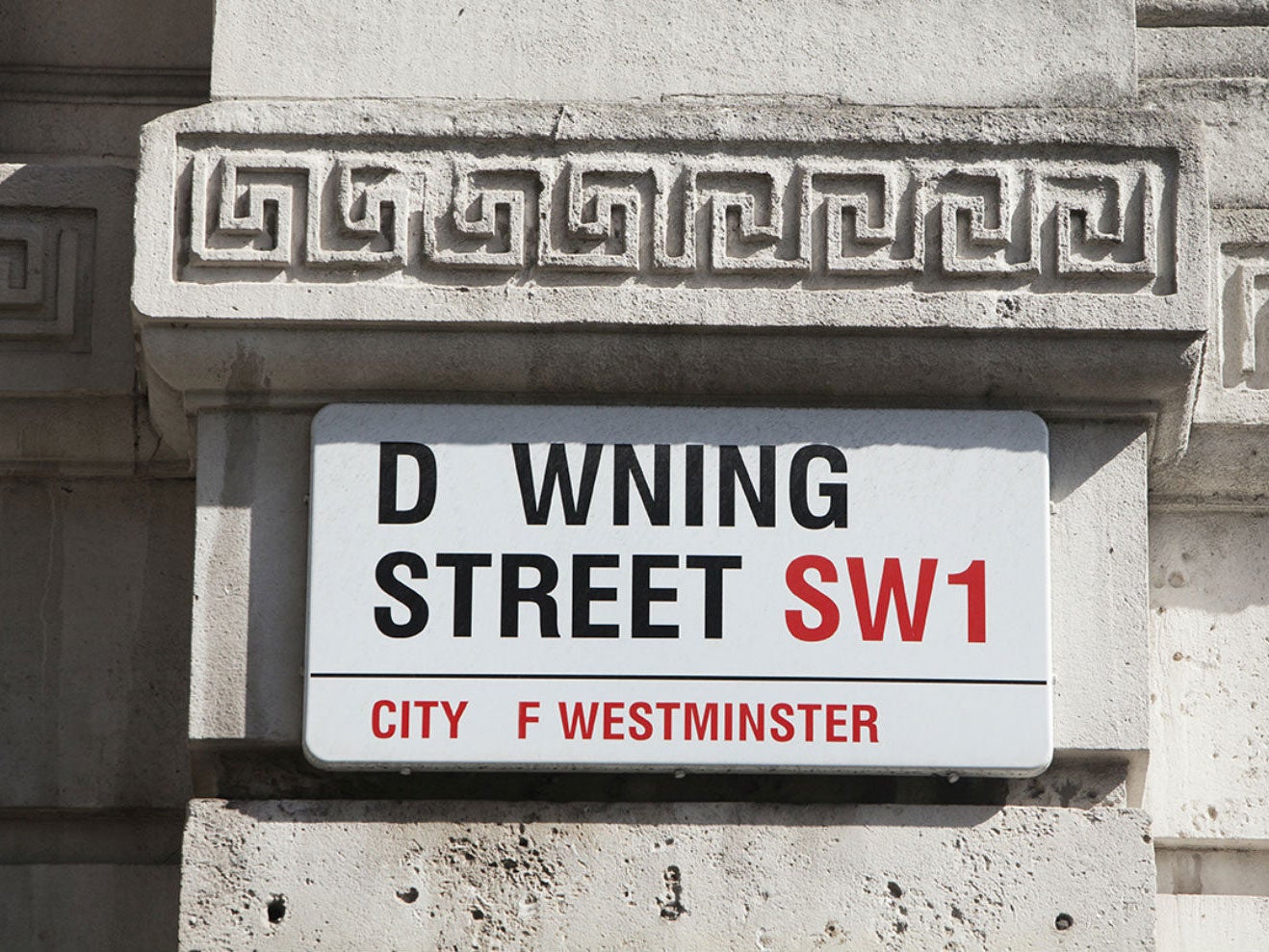Letters disappearing from signs across the UK for #missingtype blood donation campaign
Blood from A, B, AB and O are needed to maintain national supplies

Letters are disappearing from signs and shop fronts across the country as part of a campaign urging people to donate desperately-needed blood.
The Prime Minister’s official residence has become D wning Street, you can buy your books in W terst nes and eat Green & l ck’s chocolate for the duration of National Blood Week.
Landmarks, shops and brands are removing the letters A, O and B to symbolise the donors’ blood groups needed to maintain supplies in Britain.
People are also being urged to join in by taking the letters out of their names and posts on social media and using the hashtag #missingtype.
NHS Blood and Transplant said the number of new volunteers giving blood in England and North Wales has dropped by 40 per cent in a decade.
A spokesperson said the “missing type” campaign raised to raise awareness that if any of the types disappear, supplies may run critically low for patients with cancer, blood disorders, in surgery and with serious injuries.
The NHS said 120,000 fewer people started donating blood in 2014/15 compared to 2004/5.
It needs 204,000 new volunteers this year to ensure nation’s blood stocks continue to remain at a safe level in the future.
Surveys revealed that most non-donors fear needles, believe they are not eligible for medical reasons or “haven’t got around to it”.
Jon Latham, the assistant director for donor services, said: “We simply can’t ignore the fact that there has been a stark reduction in the number of new donors coming forward - a trend seen across the world.
“While we can meet the needs of patients now, it’s important we strengthen the donor base for the future.”
He listed possible causes for the decline in donors, including longer working hours and commutes, and temporary bans from giving blood because of increased world travel and tattoos.
“Giving blood is simple and easy to do and will only take about an hour of your time. It could literally be a matter of life and death for somebody else,” Mr Latham added.
Find information about how and where you can donate blood here.
Subscribe to Independent Premium to bookmark this article
Want to bookmark your favourite articles and stories to read or reference later? Start your Independent Premium subscription today.

Join our commenting forum
Join thought-provoking conversations, follow other Independent readers and see their replies